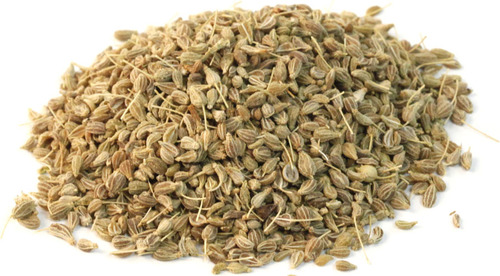
Feminine Issues?

The only All-Natural Product for:
- Feminine Issues
- Vaginal Odor
- Vaginal Itching
- Vaginal Discharge
Start Seeing A Difference Within a Few Days of Taking it!
WHAT'S THE PROOF?
Out of the tens of thousands of women that have tried Balance Complex, over 700 have been so impressed by the results, that they have voiced their results in the form of reviews for the product on Amazon, the world most TRUSTED online marketplace.
Below are just a few of the reviews of Balance Complex on Amazon:

"I have been looking for a probiotic to help with my feminine issues and this has done the trick!I have already recommended to other friends!" *

"I loved it. Just knowing that I was taking care of any problems that might occur that we as females go through gave me a piece of mind." *

"I was surprised it worked as fast as it did. Very Effective & Natural. I take one at night and one in the afternoon. And I feel so much better." *
Every order of Balance Complex on Amazon is backed by Amazon’s 100% money back satisfaction guarantee.
Try it for up to 90 days and if you aren't thrilled with the results, just notify Amazon and they will give you a full refund.

Magnesium
Candida is a fungus that naturally lives in your mouth in tiny amounts and is usually controlled by your immune system. However, if your immune system is compromised, then a disease called thrush can develop. At the time of publication, there is no evidence that this is related to a magnesium deficiency, although that also can be bad for your health.
Magnesium is one of the most important minerals for your body. It carries out a wide variety of functions, from the metabolism of energy from food, to building strong bones and to supporting healthy nerve and muscle functions. While a magnesium deficiency tends to be rare, when it occurs, it can cause gastrointestinal problems such as appetite loss, nausea and vomiting. It also can cause neurological problems, such as numbness and tingling in your limbs, muscle cramps, seizures, heart arrhythmias and personality changes.
How should you take Magnesium for candida?
A lack of Magnesium can worsen your Candida symptoms for one simple reason: Magnesium is needed to break down the toxic metabolites of Candida Albicans. Without enough Magnesium, your body is simply unable to do the job of removing these substances from your body.
The byproducts of Candida Albicans include ethanol, uric acid and ammonia, but the most important is acetaldehyde. Acetaldehyde is a neurotoxin that affects your brain, nervous system and many other internal organs, as well as damaging your red blood cells and reducing the capacity of your blood to carry oxygen around your body. If your body is unable to effectively process and remove it, this toxic substance can affect numerous different systems and cause a variety of symptoms. Acetaldehyde is also produced when you drink alcohol, and it is thought to be the primary cause of the next morning’s hangover!
Although Magnesium is not the only nutrient needed to break down acetaldehyde, it plays a major role. There is one particular enzyme that your body needs to turn toxic acetaldehyde into harmless acetate. This enzyme is named Aldehyde Dehydrogenase, and it requires Magnesium to function properly. Without enough Magnesium, your body is unable to activate the Aldehyde Dehydrogenase, which is therefore unable to break down acetaldehyde, which in turn can lead to symptoms like headaches and fatigue.
How does Magnesium for Candida work?
The content of our diets is different now too. We eat more refined grains, fewer vegetables, fewer nuts and seeds. In other words, we eat more of the foods that contain little Magnesium, and much less of the foods that are rich in it. This has become such a problem that many in developed countries get a large part of their Magnesium from foods like French fries and beer — simply because those are the foods that they consume the most!
Lastly, the epidemics of diabetes and obesity that are sweeping the world might be playing a role too. There is a close relationship between low Magnesium levels and high blood sugar. Just as a high sugar diet can contribute to a Magnesium deficiency, so a lack of Magnesium seems to disrupt blood sugar regulation.
Review Overview
5.1 OVERALL SCORE
Feminine Issues?

The only All-Natural Product for:
- Feminine Issues
- Vaginal Odor
- Vaginal Itching
- Vaginal Discharge
Start Seeing A Difference Within a Few Days of Taking it!
WHAT'S THE PROOF?
Out of the tens of thousands of women that have tried Balance Complex, over 700 have been so impressed by the results, that they have voiced their results in the form of reviews for the product on Amazon, the world most TRUSTED online marketplace.
Below are just a few of the reviews of Balance Complex on Amazon:

"I have been looking for a probiotic to help with my feminine issues and this has done the trick!I have already recommended to other friends!" *

"I loved it. Just knowing that I was taking care of any problems that might occur that we as females go through gave me a piece of mind." *

"I was surprised it worked as fast as it did. Very Effective & Natural. I take one at night and one in the afternoon. And I feel so much better." *
Every order of Balance Complex on Amazon is backed by Amazon’s 100% money back satisfaction guarantee.
Try it for up to 90 days and if you aren't thrilled with the results, just notify Amazon and they will give you a full refund.
Recent Tests
Categories
- General Health
- Feminine Guides
- Ingredient Guides
- Product Reviews
- Bacterial Vaginosis Products
- Candida Products
- Menopause Products
- UTI Products
- Yeast Infection Products
About Us

FeminineHealthReviews is dedicated in bringing you the top unbiased editorial reviews and ratings for natural products and supplements, along with specs, user reviews, supplement facts and more.
These statements have not been evaluated by the Food and Drug Administration. This product is not intended to diagnose, treat, cure or prevent any disease.
*Results may vary. If you are pregnant, nursing, have a serious medical condition, or have a history of heart conditions we suggest consulting with a physician before using any supplement. The information contained in this website is provided for general informational purposes only. It is not intended to diagnose, treat*, cure, or prevent any disease and should not be relied upon as medical advice. Always consult your doctor before using any supplements. Disclosure of Material Connection: Some of the links in the post above are "associate sales links." This means if you click on the link and purchase an item, we will receive a commission. Regardless, we only recommend products or services which we use personally and/or believe will add value to our readers. We are disclosing this in accordance with the Federal Trade Commission’s 16 CFR, Part 255: "Guides Concerning the Use of Endorsements and Testimonials." Disclaimer: © 2025 All Rights Reserved. The information provided on this site is intended for your general knowledge only and is not a substitute for professional medical advice or treatment for specific medical conditions. You should not use this information to diagnose or treat* a health problem or disease without consulting with a qualified healthcare provider. Please consult your healthcare provider with any questions or concerns you may have regarding your condition.Your use of this website indicates your agreement to this websites published terms of use and all site policies. All trademarks, registered trademarks and service-marks mentioned on this site are the property of their respective owners.





























